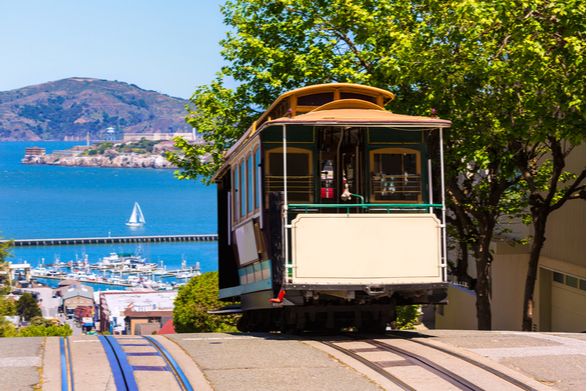Diners across San Francisco are being asked to swallow another new surcharge on their dining bills. They already face a six-percent surcharge for the city’s healthcare mandates. Now, restaurant owners want them to voluntarily pay any extra percent to fight climate change as well.
This time some diners are sending back these higher bills with a message to the owners: We don’t want it. But what the restaurants and city leaders may do next is scary.
San Francisco restaurant owners think they can reduce their carbon footprint by charging customers one percent on their checks, a voluntary fee that they can choose to pay or not. The money raised will fund a program for farmers to implement new farming practices.
The program is expected to raise about $10 million dollars.
Here’s what’s wrong with this idea.
It’s increasingly moving from voluntary to another mandate. Some restaurants have received backlash from customers who felt uncomfortable with the charge and are no longer making it voluntary but have decided to raise their prices by one percent instead. That suddenly makes a voluntarily chance to join a climate change fight mandatory for everyone.
These are private businesses and can do what they choose to their patrons, but if they feel so strongly about this cause why not take it out of their own bottom line rather than force their patrons to sacrifice?
Meal prices in San Francisco are already double the national average and this drives meals that much higher. According to May 2019 data, a meal for two at a mid-range restaurant in the city is $80. The area is home to high-income workers in the tech industry and they may be more than able to shell out more money on their checks, but what about middle-class diners who are squeezed by the area’s sky-high rents and housing prices, taxes, and transportation costs?
So far, only upscale restaurants have implemented the surcharge, but if it moves from a voluntary line on diner bills to an embedded price increase, it won’t take long for other restaurants to follow.
More concerning is that revenue-hungry lawmakers could just as easily turn the surcharge into a government-imposed mandate.
City lawmakers could also compel big employers like tech companies to make restaurants who participate in this surcharge tax their preferred vendor, an idea floated by one of the restaurateurs behind the surcharge. That would be a clear case of government picking winners and losers and totally anti-competitive.
San Francisco has plenty of problems on its hands including poop and rodent infestations and an immoral ballooning homeless crisis. Threats to public safety are driving away big tourism. Instead of looking for ways to make the city more attractive and affordable, ideas like these surcharges will make it out of reach for residents and visitors. It’s understandable that diners are unwilling to swallow another tax scheme.
Also read:
Coastal Civic Decline and San Francisco's New DA
San Francisco Has a Crappy Problem on Their Hands, but Will the City Do Anything About It?


